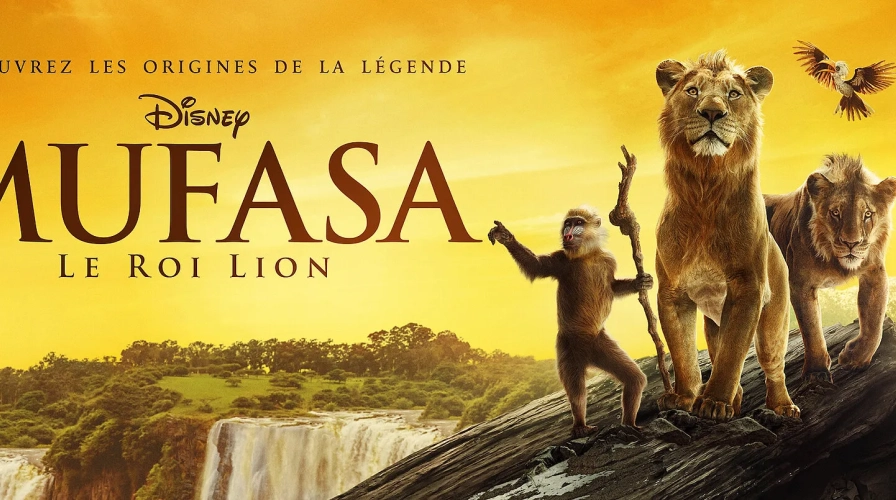Disney continues its adaptation of animated films into live-action. This time, the studio tackles a prequel to The Lion King with Mufasa: The Lion King. For the occasion, Mickey turns to the acclaimed Barry Jenkins to direct this new installment. So, what’s the verdict?
Mufasa: Barry Jenkins' Direction
It’s not the first time Disney has enlisted a celebrated and beloved director for its live-action adaptations. Tim Burton (Alice in Wonderland, Dumbo), Guy Ritchie (Aladdin), and Rob Marshall (The Little Mermaid) have all taken on the challenge. This time, it’s the renowned Barry Jenkins. Barry Jenkins is a 45-year-old American director who won an Oscar for his excellent film Moonlight (2016). With a relatively recent career, Mufasa is his fourth feature film, following Medicine for Melancholy (2008), Moonlight, and If Beale Street Could Talk (2018).

Unfortunately, as often happens with Disney, Barry Jenkins’ talent, tone, and soul have been diluted in the massive Hollywood machine. Aside from a few interesting directorial choices, particularly in the use of close-ups and immersive camera work, there’s not much to savor. While the film is visually stunning and aesthetically impressive, it lacks creativity in its direction, which may leave more discerning audiences wanting more.
A Very Traditional Film
In truth, Mufasa isn’t a disappointing or irritating work—it’s just extremely conventional. The first act, heavily geared towards children, struggles to take off and feels gently soporific. It also serves as a reminder that talking animals in live-action in 2024 feel somewhat outdated. One can’t help but recall The Lion Clan, a British film that boldly used real footage of lions, altering their faces and mouths in post-production. While it may feel dated now, it was a very daring approach.

After an overly lengthy introduction aimed more at children, the film finally gets to the heart of the story. While the narrative, detailing how Mufasa and Scar became arch-enemies, is predictable and lacks emotional depth, the action sequences occasionally manage to break the monotony. Barry Jenkins provides a few visually engaging moments, such as the stunning elephant sequence. However, the film falls into the familiar trope of identity, breaking societal norms, and self-discovery through a pleasant yet formulaic road movie. The antagonist, while serviceable, is far too conventional and fails to cast even a shadow over the original Scar.
Scar himself is merely a shadow of his former self, depicted as a timid victim—a characterization that doesn’t suit him. Timon and Pumbaa’s inclusion adds nothing to the plot, feeling forced and only serving as clumsy fan service. Their presence feels unjustified and unnecessary. On the brighter side, Zazu and especially Rafiki are well-handled, with Rafiki playing a central role that adds a welcome touch of wisdom, calm, and philosophy to the story.
Ultimately, Mufasa is not an unpleasant film, but it’s a formulaic and safe offering that takes no risks. It feels like an unnecessary addition that adds little to the broader mythology of The Lion King, which stood perfectly fine on its own.




Comments (0)